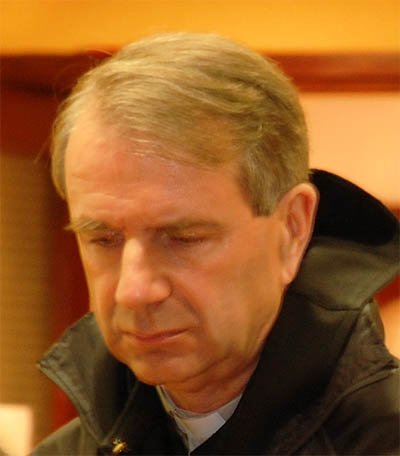‘We can become a place where people ask important questions – a Google of the soul’
 ‘We can become a place where people ask important questions – a Google of the soul’
‘We can become a place where people ask important questions – a Google of the soul’
The Pope tweets. He tweeted for the first time on 28 June this year. I first tweeted a week or so before, on 19 June, spurred on by people attending Invocation, the discernment festival for young people. So we’re all tweeters now.
In just seven years, social networking has conquered the world. In 2004, Facebook developed a platform for the exchange of personal data that today has 750 million members, a network so powerful that it generates an annual income of $2 billion. At the same time, mobile phones became computers so that the data exchanged via Facebook is now available on portable devices. And mobile phones had also become portable video cameras.
So in 2005, YouTube created a free interchange of video, while in 2006 Twitter enabled short bursts of information to be sent directly between one user and thousands of others. Within three years, a new communications environment emerged. It’s tempting to think it will go as quickly as it came but all the signs are that this new world is here to stay.
The outcome of all these shifts is that information is no longer controlled by a small group of institutions. Any individual now has access to information that was once the preserve of governments, broadcasters and journalists. The revolutionary potential of all this has been amply demonstrated in recent events in North Africa, where Facebook enabled communication between ordinary citizens that dictatorships were powerless to stop.
While Facebook did not create the Arab Spring, it clearly facilitated uprisings that could have been suppressed if people had not had information about the aims of the movement and where to go to demonstrate their support.
It is to the credit of Pope Benedict that the Holy See has jumped into this world and published statements encouraging Catholics to get involved. The challenge facing the Church is mirrored by those facing traditional news providers. The BBC, as a news brand, was until recently unparalleled. But the arrival of social networks has changed that.
The citizen journalist, armed only with a mobile phone and a free Facebook account, can send images round the world in seconds, beating the professional and bypassing the established news media. This sits easily alongside Wikipedia, the citizens’ encyclopaedia, which is increasingly marginalising the old sources of encyclopaedic knowledge.
These amateur journalists and Wiki contributors are not receiving payment for their efforts; they simply want to share the knowledge. This is eating away at the business model of the old information industries and making it hard for the old professionals to make a profit. The current scandals engulfing News International are indirectly the product of all this: the journalists involved were searching for news that was not accessible to the amateur journalist, private information for which people would be willing to pay.
Search engines such as Google and financial data providers such as Bloomberg are highly profitable businesses. So what can the Church learn from them? Like Google, we need to be a place where people can search, a reliable place of discovery.
Secondly, like Bloomberg, we need to connect diverse information in unique ways, and to be a service to help people convert a mass of information into real knowledge.
The Church lost its control of information and knowledge in the eighteenth century with the arrival of the French encyclopaedists, who set about creating collections of knowledge from sources other than the Church. The Church grieved over her loss but has passed on. Now we can seize the moment and become a place where people ask important questions, a Google of the soul. Alongside that we can offer a Bloomberg of the human economy, bringing together information from our truly catholic network to offer unique insights into how to achieve human flourishing.
At no cost, our amateur writers and reporters can become effective voices for our good news. This is the vocation of the Church expressed within the framework of the social media. We will need to become as expert in new media as we have become in the old.
A tweeting Pope? That’s one small tweet for a Pope and a giant leap for the Church.
?Christopher Jamison OSB is director of the National Office for Vocation of the Catholic Church in England and Wales.


 Votes : 0
Votes : 0









